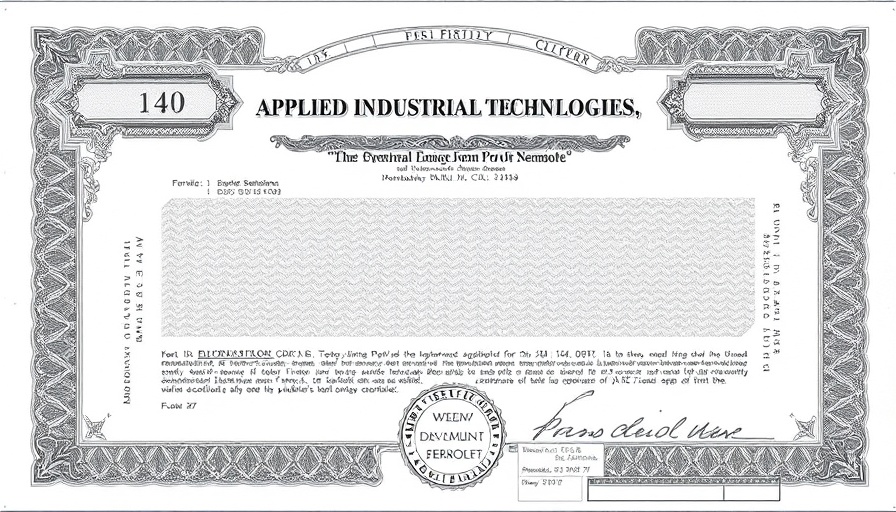
Trump's Tariff Strategy: A Temporary Solution or a Long-term Gamble?
As the administration comes to a pivotal point in its trade negotiations, President Trump's administration has once again stirred the pot with its talk of reciprocal tariffs. Morgan Stanley analysts have suggested that while the administration is preparing to impose tariffs on goods from Japan and South Korea, it is also likely to delay full implementation, hoping to buy some time for negotiators to resolve ongoing issues. This strategy might give markets some much-needed stability, but it also raises several questions about potential long-term impacts.
Understanding Tariffs: Why Should Investors Care?
Tariffs significantly influence the economic landscape and therefore matter immensely to investors. As new tariffs are proposed, they can affect stock market trends, impacting sectors such as technology, agriculture, and manufacturing. In the short run, markets may react negatively to such uncertainty, but a brief pause could also signal potential benefits for companies engaged in international trade. Understanding how tariffs can impact investment strategies is crucial for those navigating the complexities of stock market dynamics.
The Risk and Rewards of Global Trade Policies
With the world increasingly interconnected, the ripple effects of any tariff decisions can be extensive. Trump’s surfacing of reciprocal tariffs comes as a double-edged sword; while it may protect domestic industries, it can also lead to retaliatory measures from trading partners. Investors should be aware; market volatility can mean both opportunities for quick gains and risks for longer-term investment strategies. Analyzing how these tariffs might distort trade balances and consumer prices is vital for portfolio diversification and risk management.
Future Predictions: What Lies Ahead in US Trade Relations?
Looking ahead, experts predict that the ongoing discussions will either move toward a more collaborative approach or escalate into further conflicts. Keeping an eye on how these negotiations unfold will be critical. Investment strategies might shift considerably based on the outcome of these dialogues. Essentially, an investor who anticipates these changes may find themselves with a leg up in terms of asset allocation toward global markets.
The Role of Economic Indicators in Investment Decisions
As the markets await the administration's next steps, it's essential for investors to keep track of economic indicators that can guide investment decisions. Key indicators such as GDP growth, inflation rates, and job market trends can provide insights into how tariffs and trade policies are shaping the economic landscape. These indicators can form part of a robust investment education approach, enabling informed decision-making.
Stay Informed: The Importance of Investment Research Tools
In light of the current volatility and the unfolding situation regarding tariffs, using robust investment research tools becomes even more crucial. Tracking stock market trends and analyzing sector-based investing can equip investors with the insights they need to navigate these uncertain waters. Resources like market analysis, historical data trends, and fundamental analysis are indispensable tools for anyone looking to build a solid investment strategy.
Conclusion: Preparing for Market Changes
In times of uncertainty like these, being well-informed about ongoing trade policies is fundamental for successful investing. Understanding the implications of tariffs and keeping abreast of economic indicators can empower investors to manage their portfolios more effectively. Whether you're watching for opportunities to diversify through ETFs or considering investing in growth stocks amid market corrections, staying engaged with current events is essential.
 Add Row
Add Row  Add
Add 



Write A Comment